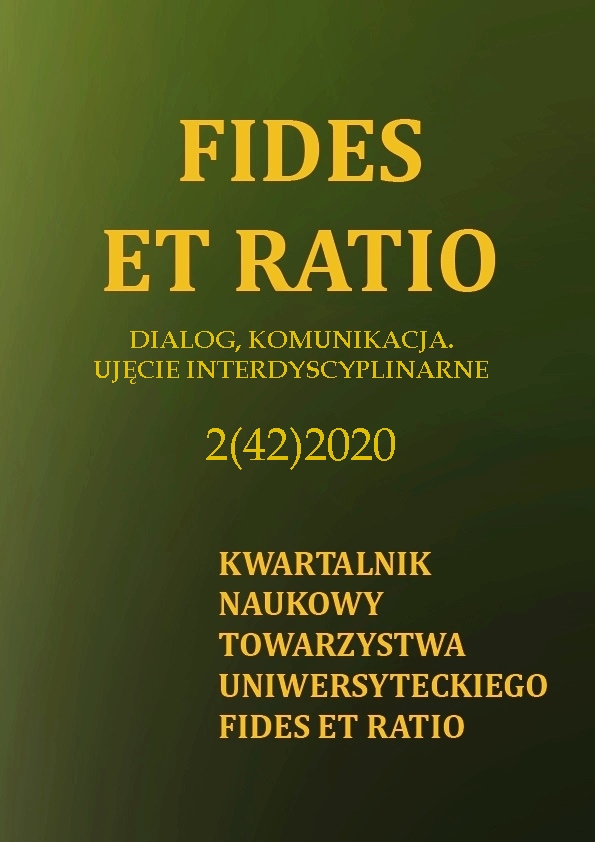Abstract
As in all the other countries of sub-Saharan Africa, instruction at the middle-school level are provided in a European language. Malagasy schoolchildren whose interactions within the family and among neighbours are conducted exclusively in their native tongue, learn to use French, and get to know European culture. It must be highlighted that teaching a foreign language is not limited to teaching a system of signs and formal structures; it is also the teaching of a different culture. This is why, foreign language teaching should be based on the guidelines of intercultural education which relies on a dialogue of cultures which in turn takes into account of richness and uniqueness of every culture.
In 2016 and 2018 the author conducted field research among Malagasy students. Her questions related – among others –- to the attitude of the indigenous children to Malagasy spoken at home and French spoken at school. The garnered material shows that the Malagasy syllabus is not based on a dialogue of cultures. The native language, and thus the Malagasy culture, become depreciated in the course of education. The respondents indicated that the native Malagasy language has a high symbolic value and is treated as the indicator of their national identify; for all that, its value in the area of education and employment is rather low. The French language, on the other hand, enjoys high prestige among the students as the language of science, culture, and novel technologies. French is associated with success and with educated persons. Very often its importance in the contemporary world is also overestimated by the respondents.
References
Achtelik, A., Niesporek-Szmburska, B. (2012). Dialog kultur, czyli o podręczniku dla dzieci do nauczania języka polskiego jako drugiego, Postscriptum Polonistyczne, 2(10), 199-218.
Bartmiński, J. (2007). Językowe podstawy obrazu świata, Lublin: Wydawnictwo Uniwersytetu Marii Curie-Skłodowskiej.
Bernstein, B. (2005). Class, Codes and Control, volume I: Theoretical Studies towards a Sociology of Language, Taylor & Francis e-Library, e-book.
Bielecka-Prus, B. (2010). Transmisja kultury w rodzinie i w szkole. Teoria Basila Bernsteina, Warszawa: Wydawnictwo Naukowe PWN.
Bochno, E. (2008). Szkolne rozmowy nauczycielek i uczniów w kontekście teorii Basila Bernsteina, (w:) A. Horolets (red.), Analiza dyskursu w socjologii i dla socjologii, 236-250. Toruń: Wydawnictwo Adam Marszałek.
Bronk, A., Salamucha, A. (2010). Dialog jako droga do prawdy o człowieku, Pedagogia Christiana, 1 (25), 11-32.
Dahl, Q. (2011). Linguistic policy challenges in Madagascar, (in:) Ch. Thornell, K. Legère (eds.), North-South contributions to African languages, 51-80, Köln: Rüdiger Köppe Verlag.
Gouleta, E. (2006). Language Learning and Linguistic Policy in Education: Considerations for Successful Bilingual Programs in Madagascar, norad.no/globalassets/import-2162015-80434-am/www.norad.no-ny/filarkiv/language-learning-and-linguistic-policy-in-education-final-report.pdf?id=5472 (pobrano 19.05.2017).
Grzybowski, P.P. (2007). Edukacja w warunkach zróżnicowania kulturowego, Przegląd Pedagogiczny, 1, 57-68.
Jaskuła, S., Korporowicz, L. (2013). Międzykulturowa kompetencja komunikacyjna jako transgresja, Pogranicze. Studia Społeczne, Tom XXI, 121-138.
Jaskuła, S., Korporowicz, L. (2017). Współczesne paradygmaty dialogu międzykulturowego, Edukacja humanistyczna, 2 (37), 33-43.
Kurcz, I. (2007). Psychologiczne aspekty dwujęzyczności, Gdańsk: Gdańskie Wydawnictwo Psychologiczne.
Lendzion, K. (2015). Madagaskar – demokracja i liberalny kapitalizm a rozwój kraju,
(w:) G. Chimiak, W. Misztal (red.), Obywatele wobec kryzysu: uśpieni czy innowatorzy? 211-230, Warszawa: IFIS PAN.
Lendzion, K. (2016). Prawo dzieci do edukacji a jakość nauczania na Madagaskarze
w szkołach elementarnych, Annales Missiologici Posnanienses, 21, 169-182.
Lendzion, K. (2017). Dylematy wyboru języka edukacji szkolnej na Madagaskarze a system edukacji konfesyjnej, (w:) M. Sroczyńska, S.H. Zaręba (red.), Kościoły i religie. Współczesne wymiary reprezentacji i partycypacji, 329-344, Warszawa: Wydawnictwo Naukowe Uniwersytetu Kardynała Stefana Wyszyńskiego.
Lendzion, K. (2019). Dwa języki – dwa światy. Język francuski i malgaski w edukacji szkolnej na Madagaskarze, Warszawa: Wydawnictwo Naukowe Uniwersytetu Kardynała Stefana Wyszyńskiego.
Lewowicki, T. (2014). Edukacja międzykulturowa – od lokalnych sukcesów ku globalnym przesłaniom i oddziaływaniom, Edukacja Międzykulturowa, 3, 19-38.
Nikitorowicz, J. (2018a). Odpowiedzialność edukacji za kreowanie dialogu międzykulturowego, Nauki o Wychowaniu. Studia Interdyscyplinarne, 1 (6), 76-88.
Nikitorowicz, J. (2018b). Edukacja międzykulturowa w procesie wspierania rozwoju tożsamości w warunkach wielokulturowości, Kultura i Edukacja, 3 (121), 55–68.
Radziewicz-Winnicki, A. (2004). Społeczeństwo w trakcie zmiany, Gdańsk: Gdańskie Wydawnictwo Psychologiczne.
Ramiandrarivo, N.T. (2010). La littérature malgache d’expression française, une littérature en exil, une littérature de l’exil, une littérature des exilés, Littératures. Université de la Sorbonne nouvelle - Paris III, https://tel.archives-ouvertes.fr/tel-00834726/document [pobrano: 12.06.2018].
Randriamasitianas, G.D. (2014). Ecoliers malgches, espace urbain et rencontre de l’autre, (in:) D.T. Razafindratsimba, V. Ranaivo (eds.),Enseigner et apprendre les langues
à Madagascar: quelle(s) entrée(s) au XXI ème siècle?, Actes du séminaire universitaire national 9-10 juillet 2014, l’Université d’Antanananrivo, 69-83, Antananarivo: Ambassade de France à Madagascar, Institut Français de Madagascar.
Reuter, K.E, Venart, L.C. (2014). Education in Madagascar: A Guide on the State of the Educational System, Needed Reforms and Strategies for Improvement, University of Mauritius Research Journal, 20, 196-235.
Safonova, V.V. (2014). Communicative Education in the Context of the Dialogue of Cultures and Civilisations, Procedia - Social and Behavioral Sciences, 154, 57-63, doi: 10.1016/j.sbspro.2014.10.112.
UNESCO (2009). Unesco World Report. Investing in Cultural Diversity and Intercultural Dialogue. Paris: United Nations Educational, Cultural and Scientific Organization. https://www.un.org/en/events/culturaldiversityday/pdf/Investing_in_cultural_diversity.pdf (pobrano: 15.04.2020).
Urban, J. (2017). Edukacja międzykulturowa – założenia i pewna jej egzemplifikacja. Na przykładzie działalności Gimnazjum z węgierskim językiem wykładowym
w Nowych Zamkach na Słowacji,. Edukacja Międzykulturowa, 2 (7), 123-134.
Wendland, M. (2011). Konstruktywizm komunikacyjny, Poznań: Wydawnictwo Naukowe Instytutu Filozofii UAM.
Żółkowska, T. (2013). Ja, Ty, Inny – dialog? Studia Edukacyjne, 28, 17-30.
Żydek-Bednarczuk, U. (2015). Spotkanie kultur. Komunikacja i edukacja międzykulturowa
w glottodydaktyce, Katowice: Wydawnictwo Uniwersytetu Śląskiego.
